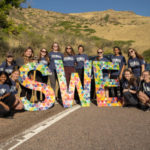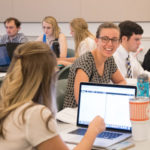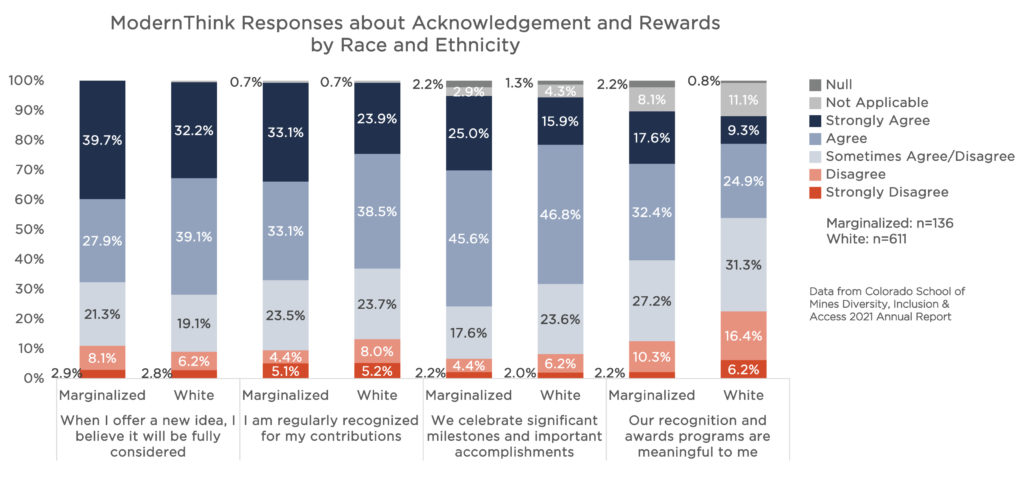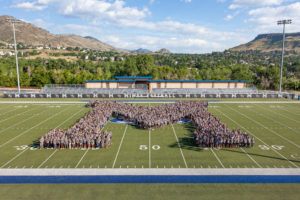
Mines places great emphasis on everyone contributing to the DI&A mission. That shared responsibility is central to Mines making forward progress as we approach MINES@150. As everyone continues to contribute to this cause, it’s imperative we reward and recognize those who find ways to support DI&A across campus and contribute to its success. In fact, formal recognition validates the work and encourages sustain efforts in this space.
In addition, we would like to recognize that Mines was elevated in 2021 as an institution that has “Very High Research Activity” (formerly known as an R1 institution) by the Carnegie Classification of Institutions of Higher Education. There are fewer than 150 universities with this designation out of nearly 4,000 in the United States. To learn more about this impressive milestone, read the Mines Newsroom press release. This accomplishment emphasizes the progress made on DI&A-related broader impacts of our scientific and engineering proposals.
Coming Soon…
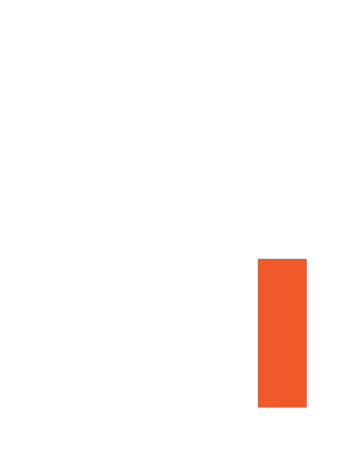 Work the Numbers
Work the Numbers
We will be making our data available via the Tableau platform and invite you to see what insights you can glean for yourself.
Form Mines DI&A community grants program to encourage and reward grassroots activities
Establish awards, recognition and promotion publicizing and recognizing individuals and units that have demonstrated successful DI&A efforts
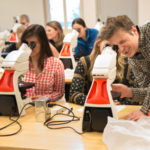
Pursue external sources of funding to support DI&A programs and institutional transformation
Efforts to Elevate
acknowledgment and Rewards
Key Highlights and Opportunities
Highlights:
- Mines was elevated in 2021 as an institution that has “Very High Research Activity” (formerly known as an R1 institution) by the Carnegie Classification of Institutions of Higher Education, which emphasizes the progress made on DI&A-related broader impacts of our scientific and engineering proposals.
- Mines DI&A awarded $5,000 in community grants to support Orediggers’ efforts to bolster DI&A activities across campus.
- Over $20 million in grant proposals were awarded that have key DI&A elements to the projects.
Opportunities:
- Work with the Mines Foundation to expand DI&A funding
- Increase support for specific areas of interest, such as first-generation students, veterans, or scholarships.
- Continue to identify and apply for large federal and foundation awards
Form Mines DI&A community grants program to encourage and reward grassroots activities
Mines DI&A established the Community Grants program in 2019. Proposals from the Mines community are submitted to the Mines DI&A team for review. Grants, averaging $750 each, are awarded based on their alignment with the DI&A Strategic Plan, the number of campus community members impacted and the contribution to overall campus inclusion. Proposals are accepted on a rolling basis and must be submitted at least four weeks before the funding is needed.
In the calendar year of 2021, Mines DI&A received a total of eight proposals for small community grants. Out of those, six were funded, totaling $4,495.00. For the activities funded, they included covering the costs of honorariums for external diversity speakers, the MCA campus conference, community conversations and student organization support.
The following is a list of groups who received support from Mines DI&A to share the responsibility of making Mines better for all:
- Arthur Lakes Library – Honorariums for Community Conversations
- Women’s Mines Community Alliance – Cover registration fees for Virtual Women’s Leadership Conference
- University Honors and Scholars Program – Amplifying Diverse Voices in Research workshops
- Four of the Mines Community Alliances – Professional Development Conference
- Civil and Environmental Engineering – Providing books for the CEE Book Club
- CEEN544 – Honorarium for Centering Equity and Inclusion in Undergraduate Research Mentoring workshop
- Mines African Student Union – Assistance in helping fund food trucks for Afro Fest
- Mining Engineering
- WISEM
- Multicultural Engineering Program Awards Banquet
- Mines DI&A Awards
- MLK Awards
- W.M. Keck Mentorship Awards
Dr. Sebnem and Dr. Nicole Smith were nominated and awarded as two of the top 100 women in Mining for 2020 by Women in Mining International.
Notable WISEM award winners include:
|
|
The Multicultural Engineering Program (MEP) hosts an annual banquet to recognize and celebrate graduating students. In 2021, Mines celebrated 32 years of MEP! Graduates received a purple and silver MEP cord as they crossed the stage and shared words of gratitude to those who have supported them throughout their journey at Mines. We also recognize awards to students, faculty/staff, and campus partners who have supported and impacted MEP and our professional societies/student organizations.
| 2021 Outstanding Student Award | 2021 Outstanding Faculty/Staff Award | MEP Campus Partner award |
|
|
|
Each year, Mines DI&A recognizes the achievements of Orediggers and their dedication to DI&A. The inaugural awards started in 2019, and since then, Mines DI&A have continued to recognize excellence in this area. Award recipients demonstrate an exceptional understanding of diversity and inclusiveness demonstrated by their to:
- enhance inclusion through positive foster dialogue communication between persons of different backgrounds,
- promote an environment free from bias and discrimination,
- raise awareness and lead initiatives that advance diversity, equity, accessibility, and inclusion,
- support efforts in Mines DI&A Strategic Plan and/or
- serve as a catalyst for change in the areas of diversity, equity, accessibility, and inclusion,
- contribute to DI&A at Mines beyond primary position description or role expectations on campus.
In 2021, there were six award recipients:
- Maryam Alahmar, PhD Student, Civil and Environmental Engineering. Award: Creating a Culture of Inclusion (student)
- Gyasi Evans, Arther Lakes Library. Award: Raising Awareness
- Christine Morrison, Chemistry. Award: Supporting Student Success
- Danica Roth, Geology and Geological Engineering. Award: Creating a Culture of Inclusion (faculty)
- Rebecca Schneider, Arther Lakes Library. Award: Raising Awareness
- Christopher Thiry, Arther Lakes Library. Award: Raising Awareness
To learn more about the Mines DI&A awards, navigate to the webpage.
To recognize their commitment to DI&A on campus, four individuals were given the Martin Luther King Jr. Recognition Award in January 2021. We’d like to honor Nicole Smith, assistant professor of mining engineering; Karin Leiderman, associate professor of applied mathematics and statistics; Alexis Lakers, Fraternity and Sorority Life Coordinator; and Maryam Alahmar, graduate student studying civil and environmental engineering. To read more about these folks and their work, check out the Mines Newsroom press release.
Through the support of the W.M. Keck Foundation, the Office of Academic Affairs created three awards to recognize excellence in mentoring activities for Mines employees. These efforts exceed regular advising practices and can include the development of new mentoring initiatives, supporting those who are in particular need or devising new strategies for growth. Four Mines employees were awarded this honor: Colin Terry, Associate Dean of Students; Cecilia Diniz Behn, Associate Professor in Applied Mathematics and Statistics; Karin Leiderman Gregg, Associate Professor in Applied Mathematics and Statistics; and Kim Williams, Professor in Chemistry. Go to their website to learn more about their accomplishments.
To deepen our skills, knowledge and impact, Mines as an institution pursues external sources of funding to support DI&A initiatives and research that drive innovative change. This is done in three ways: (1) Mines DI&A-led federal and state funding grant opportunities, (2) support faculty-led funding and (3) through corporate and private partnerships and donations in collaboration with the Mines Foundation.
Research and Technology Transfer (RTT) and Mines DI&A developed a catalogue of DI&A-related activities or programs that faculty can integrate into the proposals they lead. Through this catalogue, faculty work with Mines DI&A to customize their programming to fit their individual research projects, support DI&A activities across campus and increase the competitiveness of their proposals. For proposals starting in 2021 or 2022, Mines DI&A supported at least six proposal efforts led by faculty. RTT’s goal is to promote interest and support development of proposals that intend to increase the diversity of Mines’ undergraduate, graduate student and faculty populations.
Mines has worked closely with the Colorado School of Mines Foundation to support Mines DI&A-related programs and activities for more than 60 years. Early private funding focused on small scholarships and expanded to start programs, including Summer Multicultural Engineering Training (SUMMET) in 1971, MEP in 1989 and WISEM in 1997. From 2010-2020, private support for DI&A was four times higher than the amount received from 2000-2010. The number of recipient programs and activities also continued to increase. Support has been provided to disability services, veterans services, first-generation students, the Challenge Bridge program retention-related activities, emergency funds for students, faculty and staff and DI&A activities, such as the Mines Mentoring Program, DI&A Ambassadors and campus survey efforts. Since 2010, more than $2 million has been contributed to support scholarships which benefit underrepresented students.
- Responsible Critical Elements
- Institute for Data-Driven Dynamical Design (ID4)
- MME GAANN Fellows
- Mining Engineering WEND Collective
- Newmont Corporation: Engineering Equity and Student Retention
- Electrical Engineering Amateur Radio Digital Communications (ARDC)
- Collaborative Research and Education Architecture for Transformative Engagement with STS (CREATE/STS)
There is a rising demand for “critical minerals” that are essential to the energy transition. Although new approaches to obtaining critical minerals will likely secure resources and economic benefits, they also may have significant environmental and social impacts, unevenly distributed across landscapes and communities. This $3.3 million project, “Responsible Critical Elements: Transforming Earth Resource Development for a Carbon-Neutral Future” led by Principal Investigator Dr. Elizabeth Holly and team, will seek ways to disrupt the historical pattern of environmental injustices inflicted on marginalized communities during earth resource development, by identifying approaches to responsibly secure the domestic supply of critical elements. Furthermore, this project is a partnership with Fort Lewis College, where nearly half the students are Native American or Alaska Native. Many of these students have experienced contradictory impacts from mining, seeing the jobs created by the industry alongside the detrimental effects to environment and culture. Through courses and field trips integrating students from Mines and FLC, this project will help prepare students with these lived experiences to lead the extractive sector in a new direction, while exposing Mines students to concepts of environmental justice and sustainable development in the context of the mining industry. To learn more, please navigate to the project funding page through the National Science Foundation.
The ID4 project focuses on discovering fundamentally new mechanisms and pathways to predict dynamical processes in materials by uniting human and machine intelligence. Interwoven throughout these activities are dedicated activities to build a new generation of STEM talent at the intersection of data science and the physical sciences/engineering and to broaden participation in STEM through targeted outreach. This $15.5 million project will build research pathways for underrepresented groups through running Girls Who Code programs for high school girls, engaging community college students in summer research through programs such as NSF’s Research Experience for Undergraduates program, recruiting students through the national Alliance for Diversity in Science and Engineering (co-founded by a team member), and developing a post-baccalaureate internship program so that students who did not have access to research experiences as undergrads can compete effectively for graduate positions. The project will also work to create a culture of inclusion through extensive mentoring activities and a Student Leadership Council. Finally, IDC returns from the project are helping to fund a graduate fellowship program to partially fund high performing materials science students who demonstrate a commitment to advancing diversity, equity and inclusion. To learn more about ID4, please check out this Mines Newsroom press release about the effort.
Metallurgical and Materials Engineering was awarded a $1.2 million grant called, “GAANN Fellows in Metallurgical and Materials Engineering” from the Department of Education’s Graduate Assistance in Areas of National Need (GAAN) program in October of 2021. Faculty in MME will support 6 PhD students over 5 years. Through partnerships with minority-serving institutions and targeted outreach, as well as mentoring and other activities to enhance Mines’ inclusive atmosphere, the program seeks to increase enrollment in and completion of PhD degree programs among students from traditionally underrepresented populations. In addition, participating faculty will engage in extensive K-12 activities to stimulate interest in STEM disciplines.
In 2020-2021, the Mining Engineering department was awarded a $175,000 grant from the WEND Collective to deepen their DI&A program, in collaboration with the Geology and Geological Engineering department. This effort began by hiring an external consultant to conduct DI&A assessments, deliver DI&A workshops, and work with DI&A committees in both departments on their strategic plans.
Mines DI&A worked closely with the Mines Foundation and were awarded $200,000 from the Newmont Corporation for two projects. The first is for the Newmont STEM Equity Fellows, led by Dr. Derrick Hudson. This initiative supports Mines Academic Faculty to conceptualize and develop curriculum to bolster equitably inclusive teaching across the Mines curriculum. Fellows are awarded $10,000 each. It is critical for STEM faculty to have the skillsets of both the technical and societal issues to help students make these connections in their STEM coursework. As such, it is important to integrate concepts of racial equity into traditional engineering courses, such as concrete design, statics, mechanical and power systems. This program is training faculty to connect racial equity to their course-specific learning outcomes, resulting in students who are better equipped to consider and design equitable systems. Furthermore, this program will support the development of an Engineering Equity Center (EEC) NSF proposal, which will be a hallmark program on the Mines campus and a model nationally for how to implement racially inclusive teaching at major STEM universities.
The second project funded by the Newmont Corporation is to do a “deep dive” into undergraduate student retention factors led by Mines DI&A’s Heather Houlton and Arielle Rainey. This cross-department collaboration will investigate factors that affect Black, Indigenous and People of Color (BIPOC) students’ retention and identify solutions. The project’s four objectives are: (1) collect institutional data on factors related to retention, (2) collect data about students’ experiences, (3) identify critical transition points and causes for student attrition, and (4) co-formulate strategies with leadership to increase retention long-term. The main outcome of this project is to inform strategies and programming at Mines for the purpose of understanding any shortcomings that may prevent or cause barriers to the success of all students at Mines. There is also the possibility of uncovering any gaps in strategies or programming, and this project can provide insight as to where opportunities exist. This is a helpful method to approach retention, by promoting inclusion at Mines and a culture where students from all backgrounds desire to study. Additionally, this project can spearhead knowledge exchange with other universities, giving Mines a leadership role in retention action plans for other schools to emulate, possibly even globally. Project development is underway starting summer 2022.
Electrical Engineering (EE) worked with Mines DI&A and the Mines Foundation to secure $400,000 from the Amateur Radio Digital Communications (ARDC) Foundation to support research and scholarships that will promote and enhance digital communications science and technology. ARDC has identified a critical need for high-performing scientists and engineers with new and different skills, knowledge, experiences and perspectives entering industry to solve society’s complex communication challenges. Mines is excited to respond to these industry needs, as they are deeply aligned with the Mines Strategic Plan for Diversity, Inclusion & Access and MINES@150 goals. Together, we secured four undergraduate EE scholarships for students who are studying topics related to the ARDC mission, such as Radio Frequency Engineering or Antenna Design. Additional funding is allocated for engagement activities, professional development, and recruitment of the next generation of scientists and engineers entering the discipline. Research funds for the Electrical Engineering department were also secured from this gift to expand knowledge in computational Electromagnetics for the design of antennas and microwave devices. There is an emphasis on imaging methods for medical applications to improve circuit performance, thus supporting future wireless communications. This will enhance students’ education who will have access to new emerging technologies.
Mines received funding from the National Science Foundation to engage faculty from STEM and Humanities fields to develop and implement interdisciplinary pedagogies at the intersection of science, technology, and society. This work, led by Drs. Elizabeth Reddy and Marie Stettler Kleine in the Engineering Design and Society Department, will be a collaborative effort between STEM and humanities faculty to create new modules for courses that will raise social and ethical questions with the theme, “what is good engineering and science?” The project, “Collaborative Research and Education Architecture for Transformative Engagement with STS” is a collaborative undertaking with James Madison University, Michigan State University, and University of Maryland. At Mines, it will support four to eight faculty participants from both STEM and humanities disciplines, and up to twelve undergraduates. Faculty participants will receive $1400 and will participate in three half-day workshops to develop course material that they will implement in spring 2023. Undergraduates will have paid fellow positions and will participate in the workshops and engage in regular research team meetings. This project is envisioned as a form of participatory action research in which we the researchers, the faculty participants, and the undergraduate fellows, participate together in implementing and evaluating this research.
Studies show scientists and engineers of color have to work harder than their white peers to get the same recognition and appreciation. Mines is working to understand and rectify patterns of behavior rooted in implicit bias that overlook the contributions of our Orediggers of color. Intentionally recognizing and rewarding them demonstrates their value and allows them to advance professionally and reach their full potential. The following data present some perspectives from this population and efforts Mines is doing to acknowledge and reward our Orediggers of color.
- Women in Science, Engineering and Mathamatics (WISEM) in partnership with the Global Education office started development of a new program to increase opportunities for underrepresented and BIPOC women to study abroad. Study abroad rates, which is more important because women from URGs at Mines have much lower retention rates into years three and four and take longer to graduate compared to other women students.
- Infrastructure and Operations (I&O) created two programs that elevate opportunties for URGs. The Leadership Program teaches lessons in personal change to develop habitds for professional growth. Once an employee completes the Leadership Program, they can enroll in the Custodial Apprenticeship Program, which allows participants to work two and four hours weekly in a new area on campus outside of custodial work. apprenticeship provides URGs with the skills and experience to be considered for promotion in a different field.
- Mines Community Alliences (MCAs) provide leadership and networking opportunties for employees to conect with executive sponsors. They also provide a recognized campus leadship role, both of which increase career growth.
- The Mines Mentoring Program provides all Orediggers the opportunity to network and find a mentor who will shepherd advancement in their academic and professional career paths.
| In the HR-led ModernThink survey effort, there were questions about how employees at Mines feel acknowledged, recognized or rewarded. These data highlight some of those survey statements comparing the differences in perspectives by white employees and marginalized employees (employees of color). When we consider respondents who “disagree” or “strongly disagree,” there are few differences between white employees and employees of color. The largest difference is regarding the statement, “Our recognition and awards programs are meaningful to me,” where more white respondents disagree with that statement than employees of color. These data could be an initial indication that most respondents of the ModernThink survey feel they are recognized and acknowledged for their work. |
Click on graph image to view larger size |
